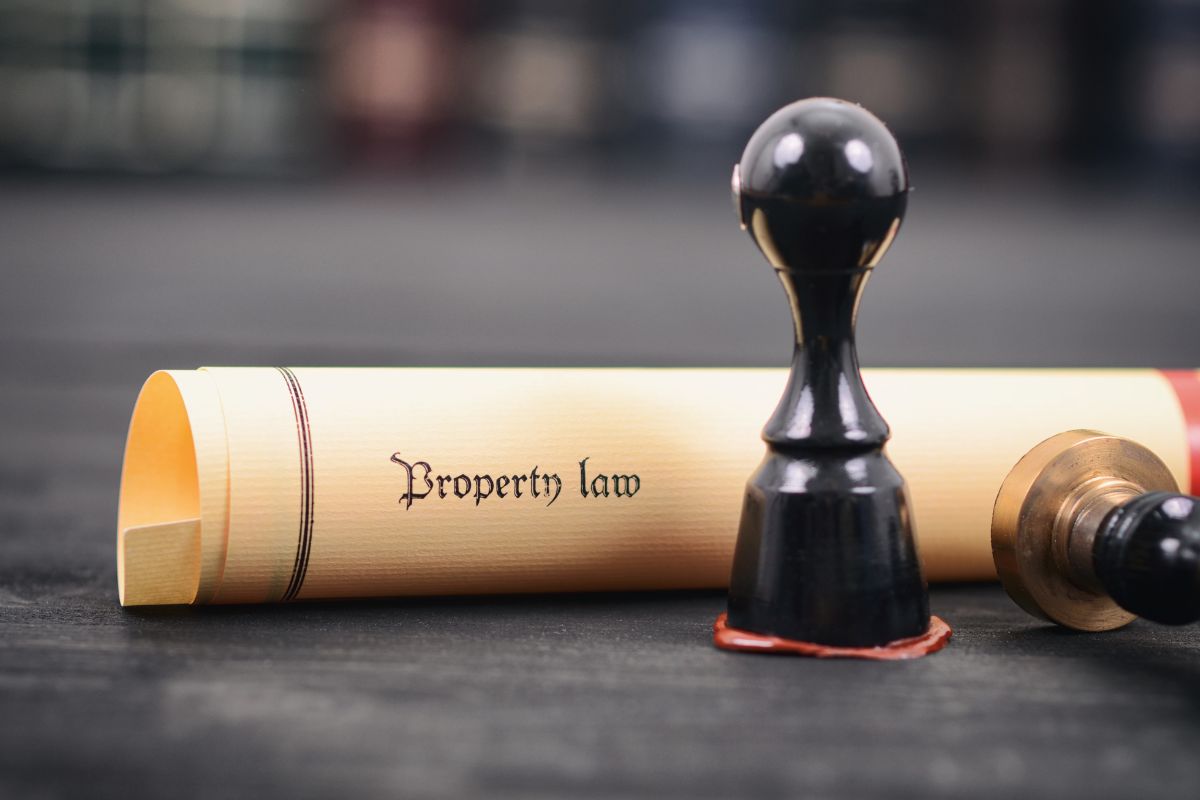Are you a new homeowner in Illinois, or thinking about becoming one? Congratulations! You’re about to embark on an exciting journey! To be best prepared and protect your new home, make sure you’re up to date on the latest property rights & responsibilities. Attorney Ben Weaver is here to break it down…
Understanding Property Rights and Responsibilities for Homeowners
Property ownership comes with its own set of rules, like keeping your property safe for visitors, keeping an eye on neighbor issues, and following local zoning laws. These responsibilities are often overlooked but play a big part in avoiding neighbor disputes and not getting caught off guard by legal obligations.
By knowing your rights and responsibilities, you’re being proactive in protecting your home and property ownership. By understanding these rights and responsibilities, you’re setting yourself up to get the most out of your property and avoid legal issues.
Property Rights: What They Mean for Illinois Homeowners
Property rights are a bundle of legal rights attached to real estate. In Illinois, these rights give homeowners control over their land, and the ability to use, enjoy, and transfer their property. But property rights aren’t unlimited, they are subject to zoning laws, public safety requirements, and other regulations.
Types of Property Ownership in Illinois
In Illinois, the type of property ownership can impact how these rights are applied. Here’s a breakdown of common ownership types:
- Sole Ownership: The property is owned by one individual. This type gives the owner full control over property decisions but also full responsibility. One unique aspect of sole ownership in Illinois is homestead rights, meaning that a non-owner spouse must sign off on the sale or encumbrance of a primary residence, offering a layer of protection for the family home.
- Joint Tenancy: Ownership is shared between two or more people, with equal rights and responsibilities. If one owner dies, their share goes to the remaining owners. Not all joint tenants must have equal ownership and decisions about the property require consensus among all parties.
- Tenancy in Common: Unlike joint tenancy, tenants in common can own unequal shares and the property doesn’t automatically transfer to the remaining owners upon one owner’s death. This flexibility makes tenancy popular among unrelated individuals or business partners who want to co-own property but have individual control over their share.
- Tenancy by the Entirety: Only for married couples, this type of ownership protects the property from being attached by one spouse’s creditors if both own the property together. For example, if one spouse incurs debt creditors can’t attach the marital residence to collect unless both spouses are liable. This type of ownership also has a right of survivorship, meaning if one spouse dies the other automatically inherits the property without it going through probate.
Each ownership type has different legal implications, especially when it comes to estate planning, asset protection, and real estate disputes.
Rights Associated with Property Ownership
As a homeowner, your rights allow you to control various aspects of your property, including:
- The Right to Possession: The primary right to occupy and use the property.
- The Right to Exclude: The right to prevent others from entering or using the property.
- The Right to Sell, Transfer, or Lease: Control over how the property is transferred or rented to others.
- The Right to Use and Enjoy: The freedom to enjoy the property within legal limitations.
- The Right to Construct or Develop: Authority to alter the property, subject to zoning and building codes.
Legal Obligations of Property Owners

With these rights come essential responsibilities. Illinois homeowners are legally obligated to maintain their property in a way that ensures the safety of occupants and the surrounding community. This includes:
- Property Maintenance: Regular upkeep of structures, plumbing, and electrical systems is not only required by law but essential for safety.
- Compliance with Zoning Laws: Adhering to local zoning regulations regarding land use, construction, and property modifications.
- Environmental Compliance: Proper waste disposal, control of toxic substances, and adherence to environmental standards help maintain the health and value of your property.
- Taxes and Fees: Property taxes support local infrastructure, schools, and services. Staying current on taxes is essential to prevent penalties or liens.
Common Types of Property Disputes in Illinois
Despite best efforts, disputes involving property ownership and rights can sometimes arise. In Illinois, property disputes can arise from various circumstances, often requiring legal intervention to ensure fair resolutions. The most common disputes involve boundary lines, easement rights, undisclosed property defects, and nuisance claims. Below is an overview of each type:
- Boundary Disputes: Boundary disputes occur when your neighbor doesn’t agree with where the property lines are. These may require professional surveys or court intervention to resolve.
- Easement Rights: An easement gives someone the right to use part of your property for a specific purpose, like utility lines or driveways. Disputes can arise if the easement is unclear or if one party violates its terms.
- Property Defects and Disclosure Issues: Buyers expect full disclosure of property defects. Failure to disclose known issues—whether by the seller or real estate agent—can result in legal claims if the buyer discovers defects post-purchase. Illinois law supports buyers in holding sellers accountable for undisclosed issues.
- Nuisance Claims: If one property owner is interfering with another’s use and enjoyment of their property—like excessive noise, pollution, or ugly structures—the affected party can file a nuisance claim. These cases often come down to the degree of interference and may be mediated or go to court.
- Tenant and Landlord Disputes: Disputes between landlords and tenants can be about repair responsibilities, occupancy rights, or rental terms. Clear rental agreements can prevent many issues, but legal action may be needed if private negotiations fail.
- Family Disputes Over Property: Conflicts within families are often about inheritance or property distribution. Family settlements can be an out-of-court solution, but unresolved disputes can go to court for a fair division per Illinois succession laws.
- Trespass: Unauthorized entry onto another’s property constitutes trespass, potentially leading to criminal charges or civil claims for damages.
- Real Estate Fraud or Misrepresentation: Sellers and agents misrepresent during property sales all the time and can hide material facts or exaggerate the value of the property. In Illinois, if deception is proven, the buyer can sue for damages.
How a Real Estate Attorney Can Help
When you’re in a property dispute, having Ben Weaver at 23 Legal on your side makes all the difference. Attorney Weaver and his team know Illinois property law inside and out and can help you navigate disputes smoothly and quickly, often without ever having to go to court. Here’s how 23 Legal can help:
- Boundary Resolutions: Disputes over property lines can be expensive and stressful. With accurate surveys, mediation, and expert negotiation, 23 Legal can get you a fair boundary resolution, and avoid the cost and stress of court.
- Easement Clarification and Negotiation: Easement disputes are tricky. Whether you’re granting, challenging, or clarifying an easement, 23 Legal will explain your rights and help you get a fair agreement and minimize conflict.
- Dispute Representation: For cases that can’t be resolved through negotiation, Attorney Ben Weaver can represent you in court, defending your rights and protecting your property’s value.
Protect Your Investment with Homeowner Rights & Legal Expertise from 23 Legal
Navigating property issues in Illinois can be challenging, especially with complex laws around property boundaries, easements, and disclosure requirements. When conflicts arise, professional legal support can provide the clarity and confidence you need to make the best decisions for your home and investment.
Attorney Ben Weaver and his team at 23 Legal understand how important it is to protect your property rights and are here to offer personalized guidance every step of the way.
Don’t let a property dispute put your investment at risk. Reach out to Attorney Ben Weaver today to learn how 23 Legal can support your needs and secure your home’s future!
Accomplish your real estate goals with 23 Legal: (847) 447-6004
Why Choose 23 Legal
23 Legal offers Real Estate and Estate Planning legal services to individuals, families, community associations and small business owners throughout Chicagoland. We know how intimidating “the law” can be. In fact, when most people think of law offices, they think of stuffy leather chairs, huge wooden desks and pompous lawyers who charge outrageous fees. That’s not us! We believe in 1-to-1; the same lawyer should work with you all the way through. Whether you have an estate planning issue, family trust concern, or you have a legal problem in regard to a new home, business, real estate or remodel, you need a lawyer who cares. That’s where Ben comes in! We are great listeners; more than that, we are lawyers who believe that our clients always come first.



